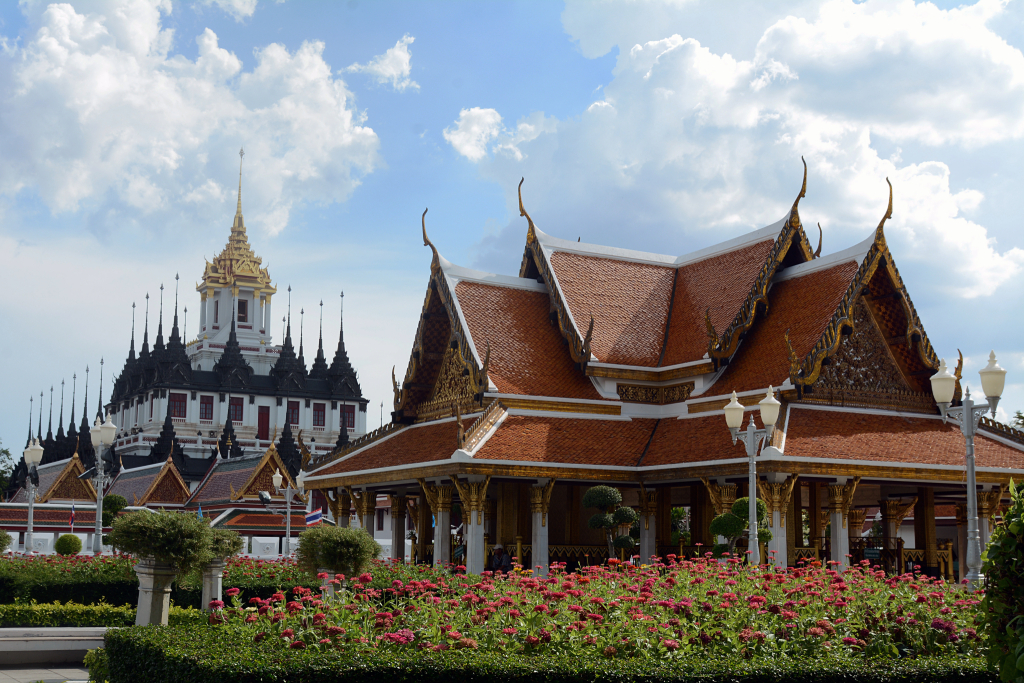Thailand Embraces Casino Resorts: A Gamble for Economic Growth?
Thailand is considering a bold move: legalising casinos. The Southeast Asian nation is exploring the potential of integrated casino resorts, offering 30-year operating licences. This ambitious plan has sparked debate, with proponents highlighting potential economic benefits and opponents raising concerns about social impact.

Thailand is among the top tourist destinations in the world. soponpotsit, 123RF Free Images
Aims of the New Proposal
Gambling has a long and complex history in Thailand. While lotteries and betting on horse races are legal and regulated, casinos have remained prohibited since the 1930s. However, the rise of the global gambling industry has led to renewed discussions about legalisation.
Prime Minister Srettha Thavisin spearheads the current proposal. It envisions integrated resorts that go beyond just gambling. These complexes would feature hotels, convention centres, shopping malls, and entertainment venues, with the aim of generating revenues beyond gambling.
The current draft of the proposal envisions casino licences with a 30-year validity and 100,000 baht application fee.
The Economic Promise: Jobs, Revenue, and Investment
The Thai government’s rationale for pursuing casino legalisation is primarily economic. The country is banking on a significant influx of foreign investment, particularly from major casino operators in Macau and Las Vegas, who have expressed keen interest in the Thai market.
The potential economic benefits are substantial:
- Job Creation: The construction and operation of integrated resorts would create thousands of jobs, providing a much-needed boost to the tourism and hospitality sectors.
- Tax Revenue: Casinos would generate significant tax revenue for the government, which would fund public services and infrastructure projects.
- Tourism Boost: Integrated resorts could attract a new demographic of tourists, potentially extending their average stay and spending.
UK Businesses Eyeing Opportunities in Thailand
The prospect of a burgeoning casino industry in Thailand presents enticing opportunities for UK businesses. With their expertise in construction, hospitality, technology, and entertainment, British companies are well-positioned to capitalise on this emerging market.
I expect there to be strong interest in:
- Construction and Infrastructure: Building world-class integrated resorts requires significant investment in construction and infrastructure.
- Hospitality and Tourism: Managing large-scale resorts demands a skilled workforce, opening doors for UK hospitality professionals and tourism operators.
- Technology and Gaming Equipment: Supplying gaming equipment, software, and technological solutions presents a lucrative opportunity for UK tech companies.
Addressing Social Concerns: Responsible Gambling and Mitigation Strategies
The prospect of legalised casinos has also ignited concerns about potential social problems, particularly gambling addiction. The Thai government is aware of these concerns and has pledged to implement robust responsible gambling measures.
Although no specifics have been published, in my opinion these should include:
- Age Restrictions: Strict enforcement of age limits to prevent underage gambling.
- Spending Limits: Implementing systems to allow players to set limits on their gambling expenditures.
- Support Services: Providing accessible and well-funded support services for people struggling with gambling addiction.
Thailand’s approach to responsible gambling will likely draw inspiration from best practices in other countries with established casino industries, such as Singapore and the United Kingdom.
Environmental Impact and Sustainable Development
The development of large-scale integrated resorts also raises concerns about potential environmental impact. Thailand, known for its natural beauty, is keen to avoid these pitfalls.
There are governmental actions that should help in mitigating the risks:
- Enforcing Strict Environmental Regulations: Implementing and enforcing stringent environmental regulations to minimise the ecological footprint of casino resorts.
- Promoting Green Building Practices: Encouraging the use of sustainable building materials and energy-efficient technologies in resort construction.
- Investing in Conservation Efforts: Allocating a portion of casino revenue and taxes to support environmental conservation and restoration projects.
A Calculated Risk: Balancing Economic Growth and Social Responsibility
Thailand’s decision to legalise casinos represents a calculated risk, a balancing act between pursuing economic growth and safeguarding social well-being. The success of this endeavour hinges on the government’s ability to attract reputable operators and implement effective regulations.
The coming years will reveal whether Thailand’s gamble on casinos will pay off, transforming the country into a regional gaming hub while mitigating potential risks. The world will be watching as Thailand embarks on this high-stakes venture.
 Online Casinos UK
Online Casinos UK



